Programming is a vast world filled with languages, frameworks, and constantly evolving technologies. However, there is a solid foundation of knowledge that never goes out of style. If you want to be a great developer, these fundamentals are essential. It doesn’t matter if you program in Python, JavaScript, or C++; the key is to understand the core concepts that support any language.
In this article, we’ll explore the fundamental pillars you must master.
1. Programming Logic
Before learning a programming language, you need to understand how to think like a programmer.Programming logic helps you structure ideas, solve problems, and write efficient code.
Key tips to improve your logic:
- Practice with pseudocode and flowcharts.
- Solve exercises on platforms like LeetCode in CodeWars..
- Use control structures like conditionals (if, else) and loops (for, while).
2. Data structures and algorithms
If logic is the brain, data structures and algorithms are the tools that make everything run fast and efficiently. Knowing how to organize and manipulate data is crucial.
Essential knowledge:
- Data structures:Lists, stacks, queues, trees, graphs.
- Key algorithms:Sorting (bubble sort, quick sort), searching (binary search, BFS, DFS).
The more efficient your code is, the better your application's performance will be.
3. Programming paradigms
A paradigm is an approach to solving problems with code. There are several, but the most commonly used are:
- Imperative programming:Based on executing a series of step-by-step instructions.
- Object-oriented programming (OOP):Organizes code into classes and objects, ideal for large projects.
- Functional programming:Uses pure functions and avoids modifying states, essential for modern development.
Understanding these paradigms makes you more adaptable when working with different languages and projects.
4. Version control
If you write code, you must use Git.It’s the tool that allows you to track changes, collaborate with a team, and prevent disasters.
Git basics every developer should know:
- git init, git add, git commit: To initialize and save changes.
- git branch, git checkout, git merge: To manage different versions of your code.
- git push, git pull: To sync with remote repositories like GitHub.
5. Best practices and writing clean code
A good developer not only makes code work but also makes it readable and maintainable. Basic rules:
- Use descriptive names for variables and functions.
- Write modular code (divide it into reusable functions and classes).
- Document your code so that others (or even your future self) can understand it.
Clean code not only saves you headaches but also makes teamwork much easier.
Master the fundamentals, and everything else becomes easie.
No matter what technology you choose, these fundamentals are key to becoming a great programmer. Understanding logic, data structures, paradigms, version control, and best practices will give you a huge advantage.
Programming is a continuous learning process, but if you master these concepts, you’ll be ready to tackle any challenge and adapt to any new language or framework. Are you ready to take your code to the next level? 🚀
